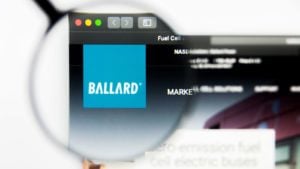As the world transitions towards a cleaner energy future, hydrogen stocks have gained attention from investors. However, not all hydrogen companies are thriving. Despite the industry’s potential, some stocks are struggling and may be worth selling. While hydrogen plays a crucial role in decarbonization efforts, the sector remains speculative and risky compared to more established industries like electric vehicles.
Investors should be cautious and consider selling underperforming hydrogen stocks that lack mainstream attention and face challenges in the market. To help navigate this landscape, I’ve assembled a list of three struggling hydrogen stocks to sell based on their current performance and future prospects.
It’s important to note that investing in hydrogen stocks can be a double-edged sword. While the industry holds promise for the future, it is still in its early stages, and many companies have yet to prove their viability.
So, here are three hydrogen stocks to sell in June this year.
Ballard Power Systems (BLDP)

Ballard Power Systems (NASDAQ:BLDP) is one of those hydrogen stocks that I feel investors should consider selling.
In Q1 2024, the company reported a net loss from continuing operations of $41.1 million, up from $32.4 million in Q1 2023. That increase in losses was primarily driven by lower finance and other income, largely due to higher negative mark-to-market and foreign exchange impacts on long-term financial investments.
The company’s order backlog at the end of Q1 2024 stood at $180.5 million, a 38% increase from the end of Q4 2023. That growth was driven mainly by European Bus and Stationary verticals. New orders worth $64.5 million were received, with $14.5 million delivered during the quarter. The 12-month order book increased by 20% to $79.7 million.
I also feel that BLDP’s valuation has a lot to be desired. It trades at around eight times sales, and its negative earnings mean it could be too risky for some investors to hold comfortably.
FuelCell Energy (FCEL)

FuelCell Energy (NASDAQ:FCEL) is another one of those hydrogen stocks to sell for several reasons.
Firstly, FuelCell Energy continues to struggle with profitability. In Q1 2024, the company reported a gross loss of $11.7 million compared to a gross profit of $5.2 million in the same period the previous year. The decline was primarily due to unfavorable margins in its generation segment and expensed construction and gas costs.
Secondly, the company’s operating expenses have been rising. In Q1 2024, operating expenses increased to $30.8 million from $27.7 million in Q1 2023, driven by higher research and development costs. That increase reflects intensified spending on commercial development efforts, which may not immediately translate into revenue growth, or any returns at all for that matter.
Analyst ratings for FCEL also leave a lot to be desired, with a consensus Hold rating and no clear agreement on when it will reach breakeven profitability.
Bloom Energy (BE)

The bear case for Bloom Energy (NYSE:BE) centers on several critical challenges and risks the company faces.
Bloom Energy’s revenue has declined. In Q1 2024, the company reported revenue of $235.3 million, a 14.5% decrease from $275.2 million in Q1 2023. The drop in revenue was accompanied by a decrease in product and service revenue, which fell by 10.5% year-over-year.
Another concern is the declining gross margin. The gross margin for Q1 2024 was 16.2%, down from 19.7% in Q1 2023. Similarly, the non-GAAP gross margin decreased to 17.5% from 21.2% in the same period. The reduction in margin indicates challenges in maintaining cost efficiencies despite falling revenues.
Moreover, Bloom Energy faces challenges related to its high valuation despite the issues it faces. It trades at a steep premium to its price-to-book ratio of 7.4 times assets and has a forward price-to-earnings ratio of 64.04x.
The risks might be substantial enough without these additional valuation concerns as well, making BE one of those hydrogen stocks to sell.
On the date of publication, Matthew Farley did not hold (either directly or indirectly) any positions in the securities mentioned in this article. The opinions expressed are those of the writer, subject to the InvestorPlace.com Publishing Guidelines.
